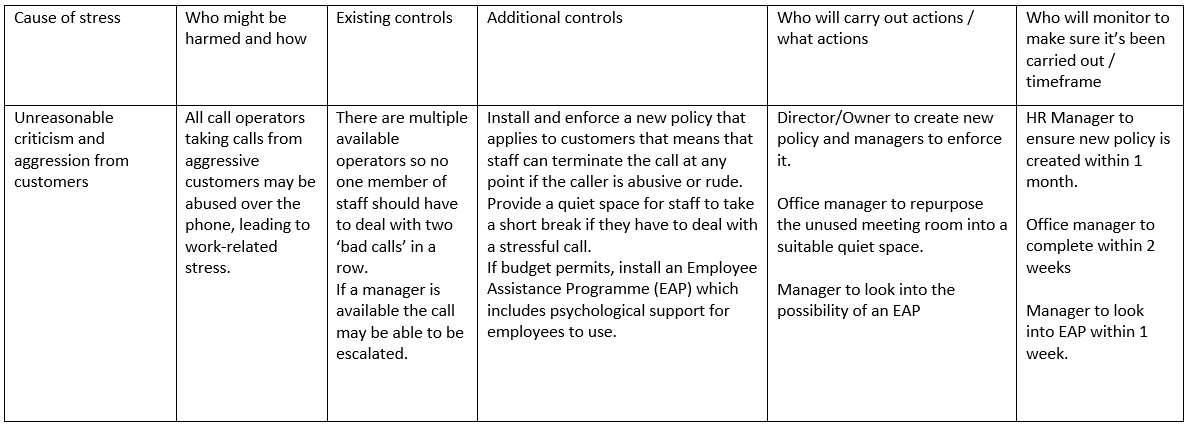Stress risk management is the process of applying risk management principles to the issue of stress.
Stress is a massive issue within the world of work, and work-related stress has accounted for a significant portion of time off. The 2021 Labour Force Survey stated that there were around 0.8 million instances of work-related stress out of 1.7 million incidences of work-related ill health.
A stress risk assessment will look at what within the organisation is causing stress, and how this stress can be assessed and controlled.
The UK’s Health and Safety Executive have been working hard over the last few years to bring stress back into the limelight, updating their guidance webpages, documents and providing more awareness of the topic of stress. They have even started a new campaign Mates in Mind.
As a health and safety company, we’re well versed in general risk assessments that cover issues of health and of safety, fire safety and other topics common to our industry, so when we look at stress, we’re looking at it from a risk management perspective. This means considering who might be harmed, how, and how this can be prevented in a way that is not only reasonable to the circumstances and organisation but also able to be put into practice.
Stress has always been on the back foot for the majority of organisations across the UK, because it is more complex to identify and deal with than physical hazards. While physical hazards may have different presentations, a lot of the key parts stays the same, for example: a fire will always need oxygen, a source of fuel, and a source of heat/ignition to start; a space below ground will always be at risk of water or heavier than air gasses entering it; a fragile roof will always be at risk of collapsing if walked upon and so on.
Work-related stress can be experienced very differently, and different people may react differently to a stressor.
Scenario
Person A and Person B both work in a customer service department at a call centre.
Customers frequently call up with problems, and while most are able to be solved without issue, some customers shout, swear and scream down the phone at the customer service operator. There is no policy to terminate calls if customers get aggressive, and the operators are frequently exposed to unwarranted criticism from customers.
Person A sees being yelled at as ‘part of the job’, and they don’t have particularly strong feelings about their job, it is what it is. Their personality and support structure mean that they can just go home, forget work and it won’t impact them.
Person B cares about the work that they do, they are invested in keeping customers happy and get satisfaction from their job. They regularly get calls where they are yelled at and it upsets them, as they feel like they are not able to resolve the issue properly. When they are yelled at by customers, it causes them stress.
The stressor in question, being unreasonably criticised and berated by customers, is created by the workplace and not a reasonable part of the work itself. Neither Person A nor Person B are a ‘bad worker’, they just have a different experience of the same stressor.
Conducting a stress risk assessment
- Identify the cause of work-related stress
- Identify who may be harmed by stress
- Look at what you have already got in place to control stress
- Consider where improvements can be made
- Identify who will carry out the actions
- Identify who will monitor to make sure the actions have been carried out
For the above scenario, your stress risk assessment might look a little like this:

Mental health conditions
Negative mental health can have an impact on experiences of stress, and those experiencing poor mental health should be considered ‘at risk’ of worse outcomes when encountering work-related stress.
Your stress risk assessment should not be identifying mental health conditions, or ‘pointing the finger’ at anyone, but looking to review what work is completed, how it is completed, and how work-related stress can be removed from the workplace.
Employees as a cause of stress
Sometimes work-related stress can be caused by an employee, typically someone with control such as a manager. If this is the case you will need to follow UK employment legislation and your own company policies and procedures in addressing the issue.
Want to know more?
We have recently released our Stress Management course, which has been designed as an awareness course to provide managers, supervisors and team leaders with an understanding of stress, why it is important to address stress, the effects that it has, and some information on managing stress.